Mark Riley: Endless Israel-Palestine conflict to rage on
Sheik Ahmed Yassin, the founder and spiritual leader of Hamas, seemed nothing like the imposing figure I’d imagined as his bodyguards wheeled him into a room in northern Gaza, in October, 2000.
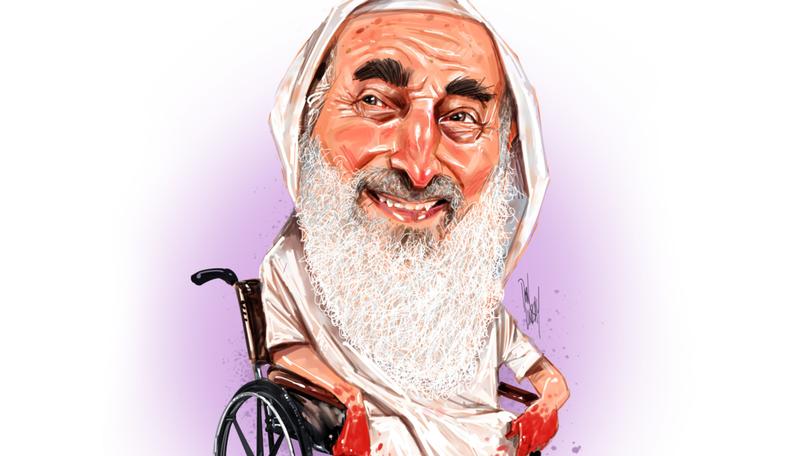
Sheik Ahmed Yassin, the founder and spiritual leader of Hamas, seemed nothing like the imposing figure I’d imagined as his bodyguards wheeled him into a room in a UN-built school not far from the Jabalia refugee camp in northern Gaza, in October, 2000.
A quadriplegic and partially blind, he slumped low in the wheelchair, his head resting on his chest, cushioned by a foot-long grey beard.
At first glance he appeared broken, defeated.
Sign up to The Nightly's newsletters.
Get the first look at the digital newspaper, curated daily stories and breaking headlines delivered to your inbox.
By continuing you agree to our Terms and Privacy Policy.But his eyes told a different story.
Those eyes. Dark, searing, intimidating. They looked at me with a piercing intensity. And they looked straight through me.
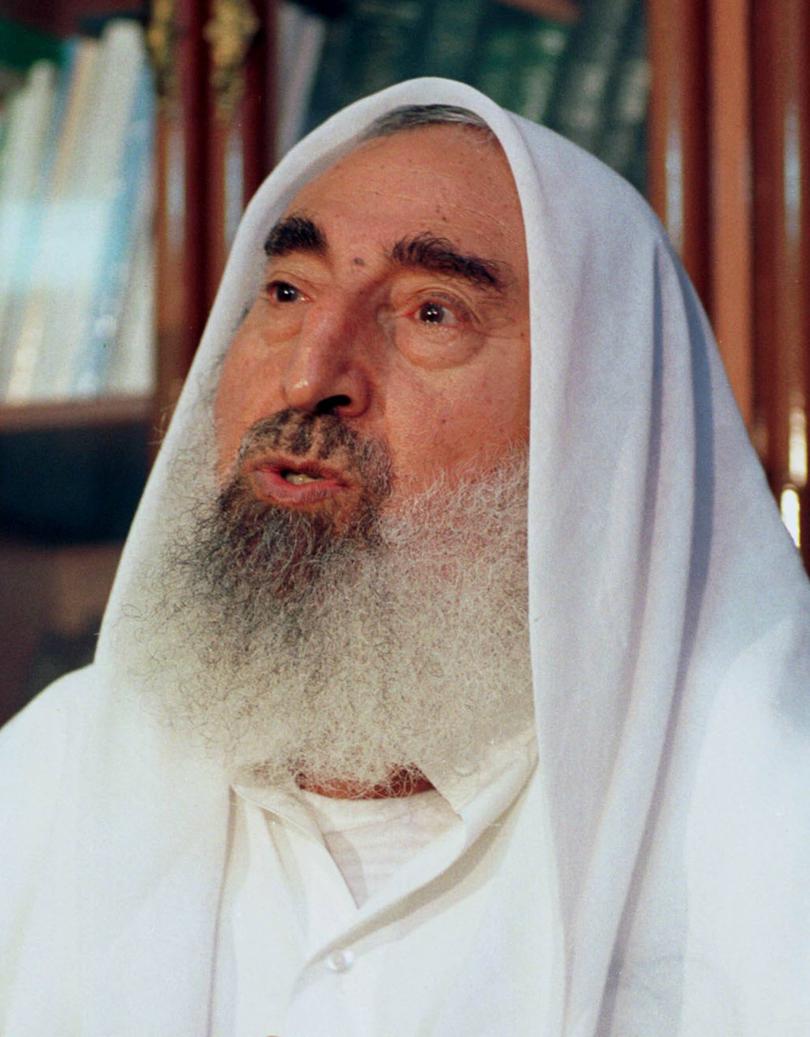
We met for an interview at the height of what is now called the Second Intifada, a series of bloody clashes between Israeli and Palestinian forces across Gaza and the West Bank that would drag on for more than four years and take more than 4000 lives.
It was just days after two al-Qaeda suicide bombers had slammed their explosive-laden boat into the port side of USS Cole as it refuelled in Yemen’s port of Aden, killing 17 US sailors.
Al-Qaeda claimed the attack was in retaliation for the US’s bombing of the al-Shifa pharmaceutical plant in Khartoum two years earlier. US president Bill Clinton had ordered the strike on intelligence suggesting it was doubling as a chemical weapons factory. That intelligence was later questioned.
I asked Yassin, through my Jordanian interpreter, Samir, if he condoned the terrorist attack on the Cole.
“US soldiers are killed on a warship in our waters on a military mission,” he said. “Innocent civilians are slaughtered in a pharmaceutical factory by Clinton and his US bombs. You tell me! Who is the terrorist?”
Retribution. Vengeance. Call it what you want, he said. He called it God’s work.
That and much more he said in our interview came back to me 11 months later, sitting in a playground with my two-year-old son near our then-New York home as al-Qaeda sent two passenger planes into the World Trade Centre in an almost unimaginable act of murderous hatred.
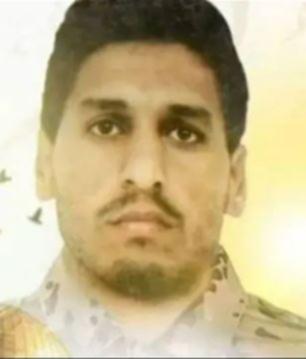
I thought of it again this week as Yassin’s contemporary successor, Mohammed Deif, ordered Hamas death squads to slaughter, maim and kidnap innocent Israeli civilians in the most vile and despicable attacks on the Jewish people since the Holocaust.
And again when Israeli Prime Minister Benjamin Netanyahu accurately declared that this was Israel’s 9/11 moment, but then suggested the West should respond in the same uncompromising manner.
Let’s hope not. The response then was to invade Iraq. The equivalent now would be to declare war on Iran.
Unlike Saddam Hussein’s Baghdad, Ayatollah Ali Khamenei’s Tehran really does have weapons of mass destruction. Lots of them. And he would likely use them.
Israel’s declaration of war is justified. But the possibility of it spreading to include a nuclear-armed Iran and its militant proxy in Lebanon, Hezbollah, is real and frightening.
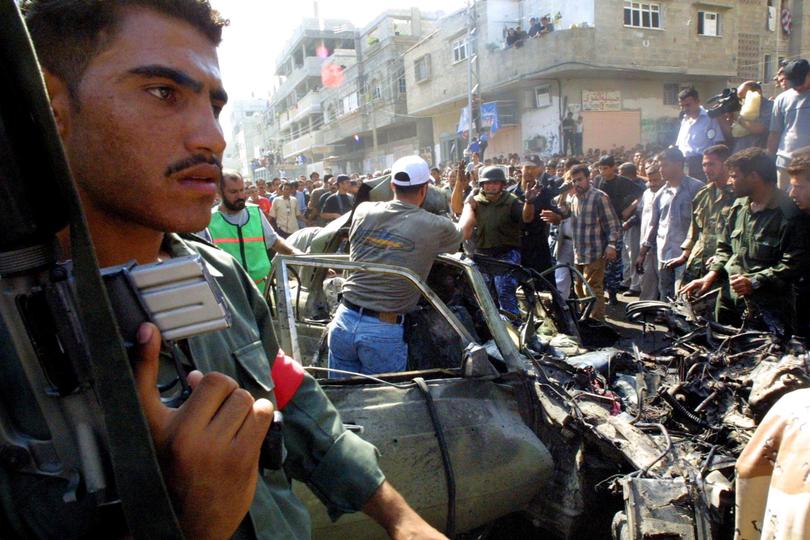
And it is important to remember that Hamas does not represent all Palestinians. Far from it. Fatah, which governed Gaza when I was there as a foreign correspondent, seems moderate now considering what Yassin’s Hamas has become. The comparisons with ISIL are valid. Its fundamental objective is to create a Middle Eastern caliphate.
And if it is wiped out by a land offensive in Gaza, another extremist group will emerge in its likeness.
The fundamentalist crusade will continue. Perhaps forever. Another of my memories from Gaza convinces me of that.
A few days after interviewing Yassin, Samir took me to a mass Palestinian rally in Gaza city.
There I witnessed a young boy named Josef Tivi marching in his too-big sandals alongside his father. He was waving a Palestinian flag and chanting along with the crowd in Arabic.
I asked Samir what the little boy was yelling.
“Praise the martyrs! Death to Israel! God is great!” he told me.
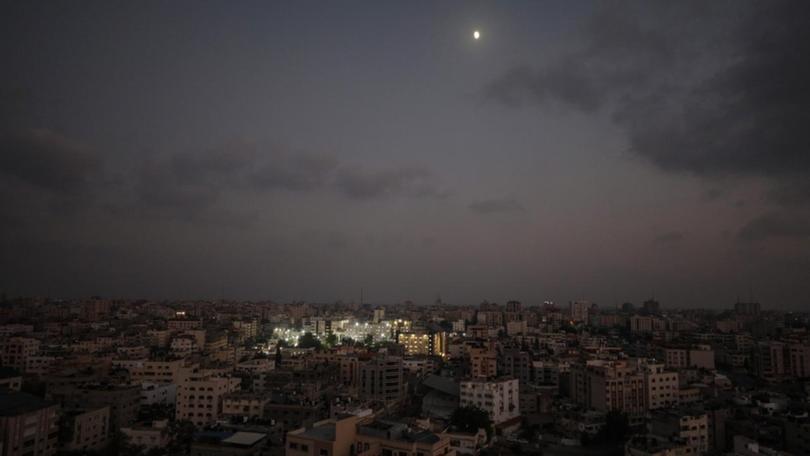
This was a five-year-old boy. He would have had no real comprehension of the murderous intent and consequence of his war cry. He was just a child chanting in a parade.
But the pride on his father’s face told me the immutable, ancestral pursuit of jihad had just been passed on to a new generation.
Just as it has since biblical times.
Just as it will be when the dust settles on what’s left of Gaza after this latest cataclysmic confrontation.

